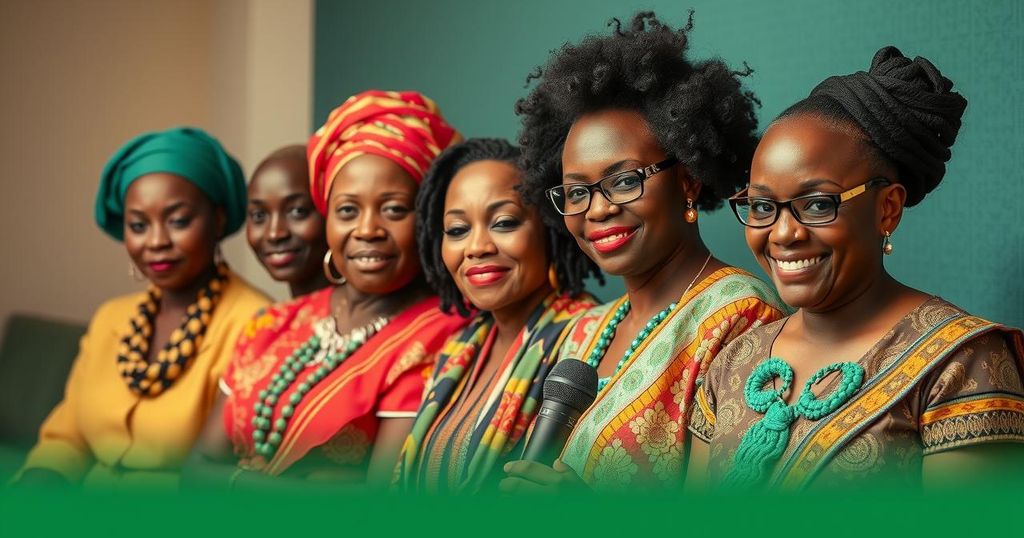Enhancing Women’s Representation in Botswana’s Parliament Ahead of 2024 Elections
Botswana faces a severe under-representation of women in parliament, with only 10.85% of candidates being female in the 2024 elections and only three women securing seats. Despite women representing over half of the eligible voters, their presence in power remains minimal. Political parties must address their internal structures for candidate selection to champion inclusivity and gender parity.
Botswana’s political landscape poses a pressing question regarding women’s representation: “bomme ba kae?” or “where are the women?” This query becomes increasingly pertinent as the country approaches its 2024 general elections. Alarmingly, only 28 women have contested for parliamentary seats out of a total of 258 candidates, a mere 10.85%. Ultimately, only three women secured seats, equating to a disappointing 4.92% of the 61 total seats, marking a decline from 5.26% in the previous elections held in 2019.
Despite women constituting 54% of the eligible electorate, their representation in positions of power remains strikingly inadequate. It is crucial for Botswana’s political parties to recognize and rectify the under-representation of women within their structures, particularly concerning the selection of candidates for upcoming elections. This initiative is fundamental for establishing inclusive democratic institutions that genuinely reflect the interests of the society they purport to serve.
In 2002, the Southern African Development Community (SADC) introduced a gender checklist aimed at ensuring gender equality at every electoral stage. Several nations within the region have enacted constitutional provisions to promote women’s inclusion or achieve gender parity within political structures. Immediate attention to these strategies is essential for enhancing women’s representation in Botswana’s parliamentary landscape.
Botswana has been facing a significant issue regarding the under-representation of women in its parliament, highlighted by the stark statistics from recent elections. The upcoming 2024 elections are a critical juncture for addressing this imbalance as women’s participation in the political process is vital for achieving gender equality in governance. Political parties play a pivotal role in shaping the representation of women through their candidate selection processes. Historically, initiatives like the gender checklist by SADC have aimed to promote gender equality in politics, but their implementation and effectiveness remain in question.
In conclusion, the situation surrounding women’s representation in Botswana’s parliament is dire, necessitating immediate action from political parties. With women making up a significant portion of the electorate, it is essential that their voices are heard and represented within governmental structures. Through commitment to gender equality and the implementation of supportive measures, Botswana can work towards a more inclusive political system that accurately reflects its populace.
Original Source: constitutionnet.org




Post Comment